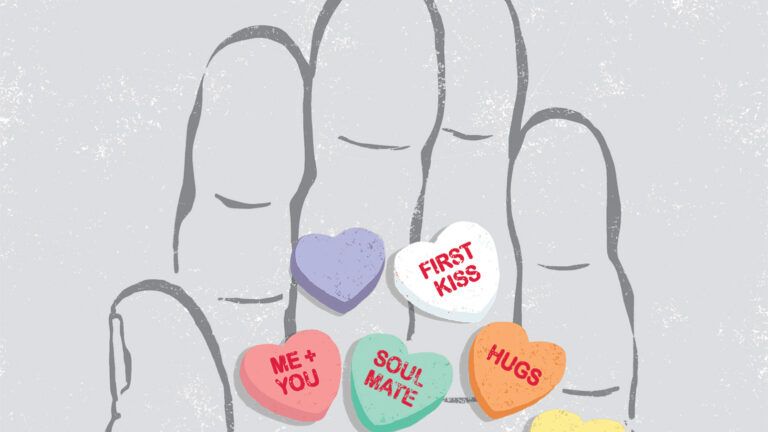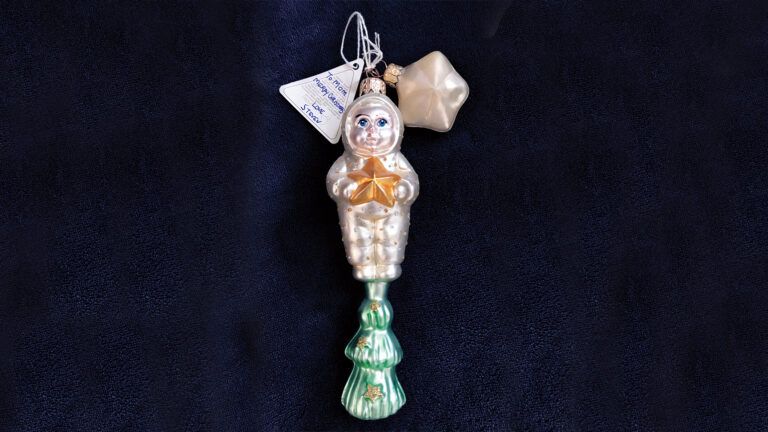Fort Bragg, North Carolina, summer of 1988.
I was a sergeant and one of 500 soldiers signed up for one of the Army’s toughest tests: a six-month-long Special Forces Qualification Course to become a Green Beret. Most of the guys were infantrymen—macho, football-player types, with the kind of build you see on the cover of a fitness magazine. They were used to hoofing for miles with heavy field packs.
I was chunky and out of shape. My background was military intelligence, where I basically sat at a desk all day and analyzed information. In high school, I was first string…on the chess team, if that helps you get the picture.
I wasn’t surprised when no one would give me the time of day. Why bother with someone who had “washout” written all over him?
So I was startled when Sergeant John Hall came up to me the day after the grueling land navigation test, a sort of preview of what lay ahead. Each of us had to hike alone in the dead of night in full gear, through miles of rough hills and swampland without the benefit of trails or even a flashlight, and finish just after dawn. John had been one of the first finishers. Naturally, I’d been practically last. I was still exhausted from the ordeal.
“My name’s John,” he said, sticking out his hand. John looked to be in his early twenties. He had a down-hollow accent; later I’d learn he was from deep in the hills of West Virginia. A trainee like me, he was the most gung-ho soldier in our outfit. His uniform fit like a custom suit, and his black, standard-issue combat boots were buffed like a new pair of dress shoes. I could tell he felt pity for me and I wanted none of it.
“I’m Dixon Hill,” I said. “You don’t have to talk to me. I understand why guys are ignoring me.”
I figured it was pointless to try to change people’s minds about me. But I knew the truth. I bled Army green. As a kid, I loved listening to my dad’s stories about serving as an Army engineer in the Philippines after World War II. I joined the Arizona National Guard at 18. I had always dreamed of being a Green Beret.
Of course, John didn’t know all that. But I relaxed a little when he smiled and said, “You’ll be here tomorrow, and the day after, and the day after that until you graduate. You got it in you. I can tell. Just keep doin’ the right thing.”
Training school was even tougher than advertised. And there was more to it than just physical strength. One day, I had to make camp in the woods, then kill and cook a caged animal that would feed me two days. I chose rabbit. I attempted to roast it with little success. “You should have picked a chicken,” John told me. “And you should have boiled it—boiling’s faster. I learned that from my daddy when we went hunting.” He hiked back to his campsite and brought me some of his meal. I was chagrined but grateful.
People dropped out left and right. Some failed the field tests, others collapsed from physical strain and some flat-out quit. At the halfway point, just 175 of us remained. One day, after parachuting into a drop zone, one of the football types eyed me and snorted, “Hill, you’re still here?”
I was, barely. I still wasn’t in very good shape. During one brutal full-gear hike through the North Carolina hills, I slumped against a tree. I wanted to sleep for a solid week. John sat down. “How you doing?” he asked.
“This is the hardest thing I’ve ever done,” I said. “I’m not sure I can make it.”
John looked at me, and then he did something funny. He bent down and patted his shiny combat boots. “We all use little tricks to keep us going,” he said. “Mine are these boots. They ain’t made for standing still. They’re God’s reminder to me to keep moving when times are tough. You need to just keep doing the next right thing.”
Pretty soon I felt myself getting stronger. I looked forward to physical tests. Guys began to eat with me and shoot the breeze. Slowly but surely, I sensed that I was being accepted, and that I belonged.
Now that I could keep up, I ran with John in drills. One of our last was the rucksack run test—a torturous, 15-mile sprint through hill country wearing heavy backpacks. We had three and a half hours to finish. John ran directly in front of me. All day, I passed guys who’d collapsed in their tracks. But you were supposed to keep running, no matter what.
I cleared the last rise. The finish line was 15 yards ahead. “Made it!” I started to say. Then suddenly, John went down like he’d been shot. I have to stop. I have to help him up. But then I remembered our orders. I jumped over John and completed the race.
It was only then that I looked back. John was still lying there. A medic raced down the path. I prayed as the medic administered CPR. Come on, big guy.
John didn’t revive. He was dead of a massive heart attack.
My grief turned to guilt. The bottoms of my boots were probably the last things John had seen. I should have stopped.
The Army flew John’s body home to his family in West Virginia. Our unit held its own memorial service. I marched into Fort Bragg’s Special Warfare Center chapel, my mind spinning. If I had stopped to help, could I have saved him? The medic told me no. Still, I couldn’t forgive myself.
The pastor put John’s boots—spit-shined to a mirror finish—on the chapel altar. An M16 rifle stood upside down between them. A green beret rested on top of the rifle. The army had awarded it to John posthumously. Lord, I prayed, I can’t live with the possibility that I didn’t do the right thing.
The pastor spoke movingly, but my mind drifted. I thought about that time John shared his boiled chicken with me. The company commander rose. We stood at attention as the captain called roll. “Here, sir!” soldiers barked back, as we went down the line.
Then the captain shouted, “John Hall!” Silence. The captain paused, then continued. “Dixon Hill!”
“Here, sir!”
On it went until the last name was called. Again the captain said, “Is Sergeant John Hall of West Virginia here?”
Once more, silence.
His voice wavering, the captain shouted, “Last call! Sergeant John Hall!” I stood ramrod straight, trying to ignore the stinging in my eyes. My friend is gone. Do I have the strength to go on?
Just then a flash of light came. Brilliant light. The light reflected from John’s boots, on the altar. It was so bright I couldn’t tear my eyes away. The effect made the boots glow, and its glow engulfed me. I heard John say again, “God had the Army issue us these boots to keep us moving, even when times are tough.”
Fifteen years have passed since that day at the base chapel. I’m out of the Army now, retired from the Green Berets. I’m 40 years old and in college, studying for a new career. Sometimes, in the middle of a tough assignment, I think of John.
The other day, I dug my old Army boots out of the closet. I can’t wear them anymore; they’re faded and cracked, and the leather is splitting. But they are there to remind me: Yes, times can get tough. But the tough get through tough times. They just do the next right thing.





